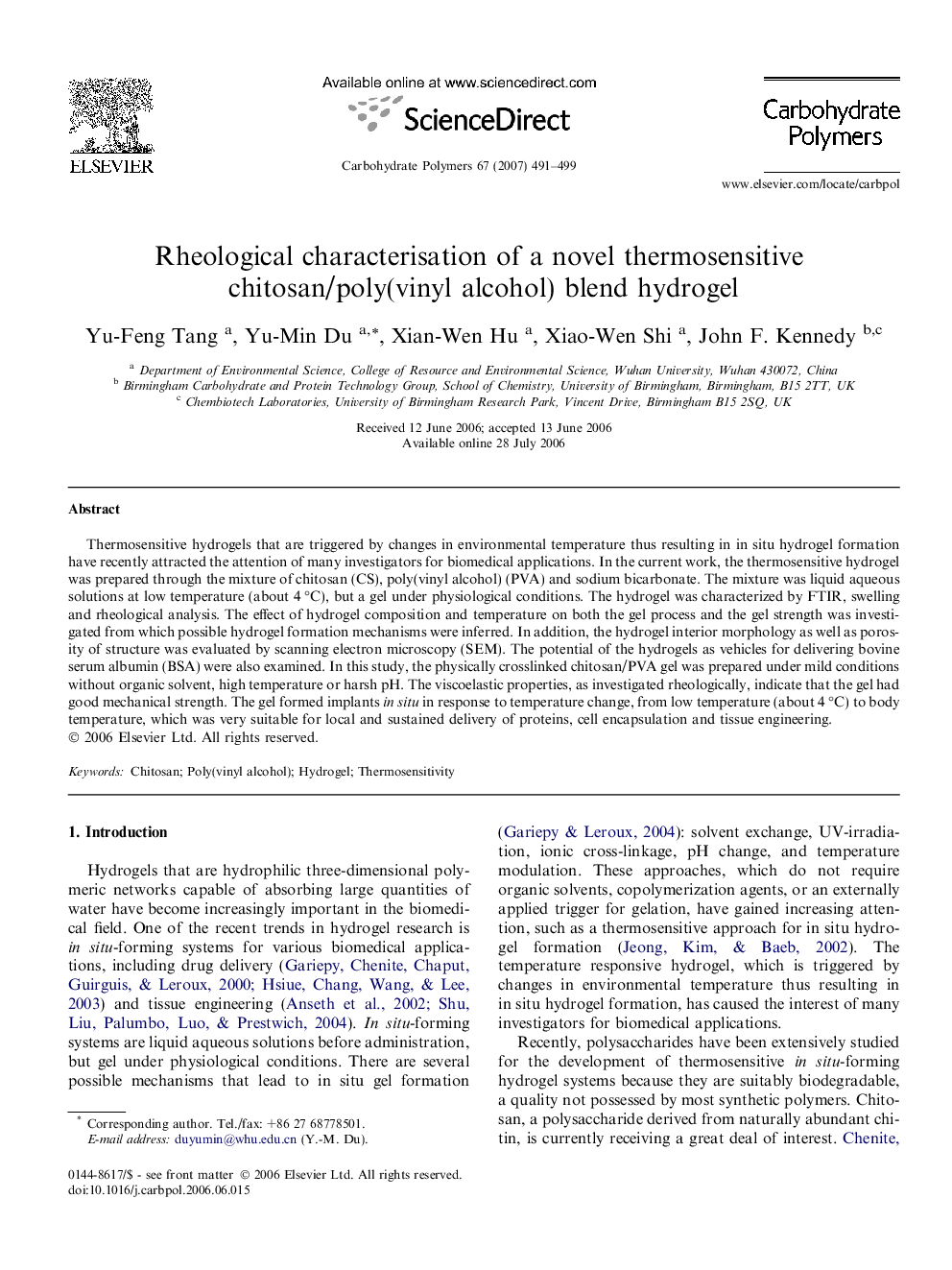| Article ID | Journal | Published Year | Pages | File Type |
|---|---|---|---|---|
| 1386744 | Carbohydrate Polymers | 2007 | 9 Pages |
Thermosensitive hydrogels that are triggered by changes in environmental temperature thus resulting in in situ hydrogel formation have recently attracted the attention of many investigators for biomedical applications. In the current work, the thermosensitive hydrogel was prepared through the mixture of chitosan (CS), poly(vinyl alcohol) (PVA) and sodium bicarbonate. The mixture was liquid aqueous solutions at low temperature (about 4 °C), but a gel under physiological conditions. The hydrogel was characterized by FTIR, swelling and rheological analysis. The effect of hydrogel composition and temperature on both the gel process and the gel strength was investigated from which possible hydrogel formation mechanisms were inferred. In addition, the hydrogel interior morphology as well as porosity of structure was evaluated by scanning electron microscopy (SEM). The potential of the hydrogels as vehicles for delivering bovine serum albumin (BSA) were also examined. In this study, the physically crosslinked chitosan/PVA gel was prepared under mild conditions without organic solvent, high temperature or harsh pH. The viscoelastic properties, as investigated rheologically, indicate that the gel had good mechanical strength. The gel formed implants in situ in response to temperature change, from low temperature (about 4 °C) to body temperature, which was very suitable for local and sustained delivery of proteins, cell encapsulation and tissue engineering.
